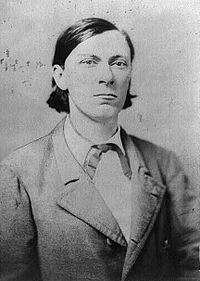 |
| Colonel Roger A. Pryor |
WAR DEPARTMENT, C. S. A.,
Richmond, Va., January 26, 1862.
General JOSEPH E. JOHNSTON, Centreville, Va.:
SIR: Inclosed you will find an order detaching General Beauregard from the army under your command and assigning him to do duty at Columbus, Ky., which you are requested to forward to him at once. Regretting that the exigencies of the public service force us to deprive you of the aid of this valuable officer, I still entertain undiminished confidence in your capacity, with the aid of the able generals who still surround you, to maintain the position which you have thus far successfully defended.
I am, your obedient servant,
J. P. BENJAMIN,
Secretary of War.
[Inclosure]
General G. T. BEAUREGARD, Manassas, Va.:
SIR: Colonel Pryor has reported to the President, as the result of his interview with you, that you would cheerfully accept the command of the defenses at Columbus, Ky., and that your absence from the Army of the Potomac would not seriously impair its efficiency. He therefore desires that you proceed at once to report to General A. S. Johnston, at Bowling Green, Ky., and thence proceed, as promptly as possible, to assume your new command at Columbus, which is threatened by a powerful force, and the successful defense of which is of vital importance. You are authorized to take with you your present staff or such members of it as you wish to accompany you.
I am, your obedient servant,
J. P. BENJAMIN,
Secretary of War.
Official Records, Series I., Vol. 5, Part 1, Page 1048.
Beauregard had been advancing plans through the fall for the invasion of Maryland. Rebuffed by the administration, he requested transfer to New Orleans, which he believed would soon be attacked. And he had angered Davis when his reports of the Battle of Bull Run were published, blaming the President for preventing the pursuit and destruction of McDowell’s forces. The move solved a difficult personnel situation without sacrificing a general who still retained the confidence of the troops of public, as well as giving Albert Sydney Johnston a much needed field commander. The Colonel Pryor mentioned was Roger A. Pryor, a former member of the House of Representatives and well known "fire eater" before the war. After the war he moved North and went into law practice with Ben Butler, becoming late in life a New York state supreme court justice.
No comments:
Post a Comment